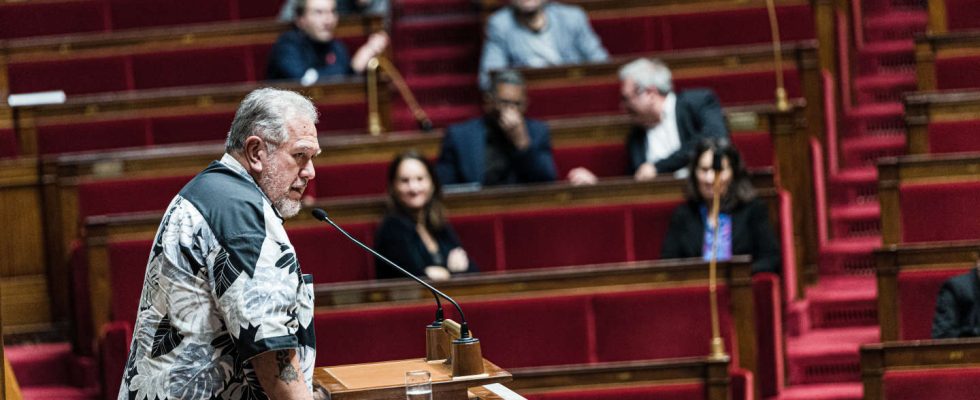The independence movement continues to grow in French Polynesia. Moetai Brotherson was widely elected, Friday, May 12, president of the territory by the representatives of the local Assembly of this South Pacific community. This 53-year-old former rugby pillar, in favor of a smooth transition to independence, was chosen by the 38 separatist representatives of the Assembly, elected in the territorial elections on April 30.
In a Territorial Assembly of 57 seats, where the separatists thus have an absolute majority, the representatives also granted sixteen votes to the outgoing autonomist president Edouard Fritch, and three to another autonomist candidate, Nicole Sanquer. The day before, they had elected another separatist, Antony Géros, at the head of the Assembly.
The clear electoral victory of Mr. Brotherson could place his independence camp in a position of strength against the French State to negotiate a referendum of self-determination of the territory made up of five archipelagos, the size of Europe, 17,000 km from Paris. His program and his more consensual personality than the historical frameworks of his movement have enabled him to seduce part of the autonomist electorate, the majority and so far standing against his party.
“Do not fear independence”
In his speech, Mr. Brotherson assured France of its ” respect “ while calling on the population not to “not fear independence”which will not be “never imposed” to Polynesians. Despite the re-registration in 2013 of French Polynesia on the United Nations list of non-autonomous territories to be decolonized, Paris has never wished to engage in negotiations around the decolonization of this community.
Far from the peaceful spirit displayed by Moetai Brotherson, the new President of the Assembly, Antony Géros, felt in his first speech that France had “used his authority to make and break majorities according to his interest, until he instrumentalizes elected officials” during the political instability, between 2004 and 2013.
Antony Géros, close to Oscar Temaru, the founding president of Tavini Huiraatira, represents the radical line of the Polynesian independence party, which wants rapid independence. Moetai Brotherson on the contrary indicated that he hoped for a referendum of self-determination “in ten to fifteen years” and estimated “not being able to get there in the next five years in good conditions”.
Their large majority not having much to fear from the autonomist opposition, the main question concerns the coexistence between these two internal lines, one of which will control the government and the other the Assembly.
Autonomists hit by a “wave of degagism”
In Polynesia, a “wave of degagism” hit the separatists hard, some of whom, like Edouard Fritch or Gaston Tong Sang, had been in power almost continuously for around forty years. With younger candidates and a campaign focused on purchasing power, the separatists appealed beyond their traditional electorate.
“There was no change, only tax increases, so now we will see if the new government lowers the cost of living, because shopping and the canteen have increased a lot”hopes Jenny Faareoiti, a 40-year-old cook. “I grew up in a separatist family and what we want is freedom, no longer depending on France”claims, for its part, Here Mehao, a student in marketing.
Others fear a break with the metropolis, which transfers 1.7 billion euros to French Polynesia each year to finance education, security or justice there. “We need this money, this food that we import”, worries Hinatea Rei, a waitress in her thirties. At his side, sommelier Raimana Holman adds, considering “that we would crash on the reef without the help of France! »
Moetai Brotherson says he wants a smooth transition, social and sustainable development. He should present, Monday, his government, announced joint. Due to multiple mandates, he will leave his seat as deputy (Nupes) and will be replaced by his alternate, Mereana Reid Arbelot.
The pro-independence president of the Caledonian Congress, Roch Wamytan, was in Papeete to attend the elections of his lifelong allies. “As soon as they have the political and institutional levers with the three – deputies, presidency of the Territorial Assembly and of the government – and us, over there, the presidency of the congress and the government, we have to work together to advance our political project, which is independence”he told Agence France-Presse. “But the French state wants to stay in the Pacific thanks to us, thanks to our territories, and it will be horribly complicated”he believes.

